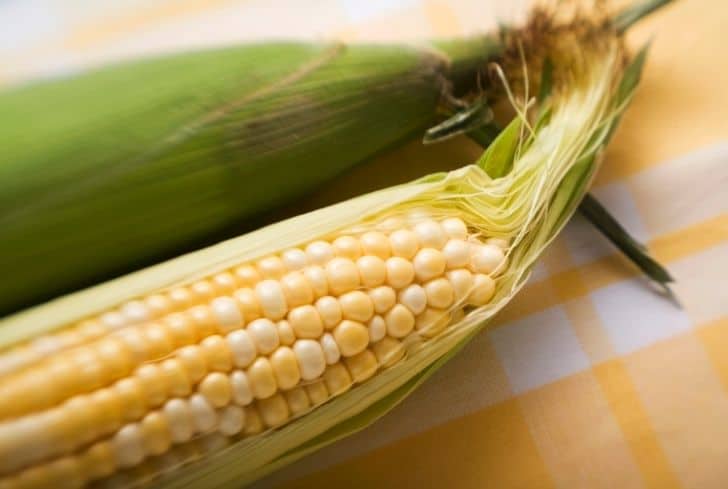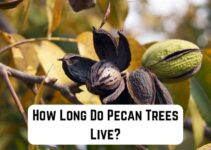If you have a garden in your home, we’re certain you know that corn is one of the easiest food crops to grow. It takes between 90 to 120 days but will yield faster if you apply fertilizers.
A small or large cornfield is also pretty easy to maintain, and typically, you can plant one from late March to early May. As long as you weed your garden regularly and provide sufficient water, you’ll find yourself with a bountiful harvest within 18 weeks.
Now, harvesting your corn will certainly leave you with some messes to clean up. If you’re wondering if you composting corn cobs is a suitable way to dispose of them, then you’re at the right place. Aside from composting corn cobs, we’ll also tell you the other parts of corn that you can compost and how long the process takes.
So please, sit back and enjoy.
Can Corn Cobs be Composted?
After the harvest period, one of the easiest clean-up methods is to compost the mess the period leaves behind. More often than not, the mess that’s left behind is compostable because it’s usually food waste.
If you’re curious about whether you can dispose of your unwanted corn cobs by composting them, then you absolutely can! In fact, corn cobs are highly suitable and ideal for compost piles.
They’re food waste, odorless, and will decompose quickly. Corn cobs aren’t sugary either and will certainly not attract fruit flies or other pests that may want to have a taste. However, they won’t decompose as fast as other compost materials like vegetables, leftover food, or other garden waste.
You can also compost rotten corn cobs. In fact, these are pretty ideal for the compost pile. They’re already going bad, which means that the decomposition process will be much faster.
Corn cobs should never go in the trash can! While they can decompose in a compost pile within 2 months, leaving them in landfills will slow down the process, and it can take as long as 18 years before it eventually happens.
Of course, the decomposition process leaves no adverse effect on the environment. However, a significant amount of corn cobs on our landfills will take up precious space, so why choose this option when you can simply compost them instead?
So, even if you don’t have your own garden but have some corn cobs in your possession, you can include them in the food waste you’ll be toting down to your curbside compost pile. It doesn’t smell when it’s rotting, and this makes it an excellent fit for a compost pile at home or on your curbside.
Can You Compost Corn Husks?
The husk is another essential part of corn crops you’ll encounter when cleaning up after a harvest season. These may even be more than corn cubs themselves, as more often than not, we consume corn cobs but certainly cannot eat the husks.
The husks are usually in excess too, and they’re that way to protect the corn cobs from insects and pests while growing. Part of harvesting entails taking apart the husks to reveal the cobs themselves, leaving you with a mess to clean up.
Now, how do you dispose of corn husks? Can you compost them? Well, you certainly can, and you should.
You see, corn husks are a source of natural fertilizer for your soil and plants, and they certainly beat store-bought ones. For one, you’re cutting back on fertilizer costs, and you’re using purely organic fertilizers in your garden.
Corn husks can be green if they’re fresh from the farmers’ market or your garden, and you can simply toss them in your compost pile. However, you won’t always have fresh corn husks, but you can equally compost the brown ones. They can both go in the compost pile and will break down much faster than corn cobs.
Can Cooked Corn Cobs be Composted?
Corn is a tasty meal, and you can prepare it in various ways. However, you can’t consume the entire body. No, you’ll be able to eat just the kernels, so what happens to the cooked cobs? So, if you have a batch of cooked corn cobs, you may wonder which bin is most suitable for it.
Well, the compost bin or your garden’s compost pile are both suitable for it. Corn cobs are food waste, and as long as they aren’t fish, meat, bones, dairy products or baked goods, they can go in the compost pile.
In fact, since the corn cobs are cooked, they’re much softer and will decompose even faster than the uncooked version. They’ll even help speed up the decomposition process for the rest of your compost materials because of the air pockets the kernels used to be attached to.
These pockets will trap sufficient air, and coupled with enough moisture, heat and microorganisms, speed up decomposition and make organic fertilizers ready for your soil and plants.
However, even when cooked, corn cobs are relatively stronger than the other items you’ll find in a compost pile. As such, they’ll take longer to decompose. That’s in your favor, as even after you sift the ready compost materials, you can reuse this batch of corn cobs for your next compost pile.
Are Corn Cobs Good for the Garden?
Absolutely. Corn cobs are suitable fertilizer and compost materials, and they even have additional advantages compared to other compost materials.
Some of the benefits include the following:
Bulk to Soil
Corn cobs are relatively heavier than other compost materials. They have more weight, putting them in the perfect position to serve as a bulk provider for your compost pile. The best part is that they don’t decompose as fast as other compost materials; hence, you can use them repeatedly – even as many as three times before they finally decompose.
Corn cobs can also add bulk to the soil. When it’s broken down to a certain extent, you can proportionally mix it with clayey soil to increase the nutrients and improve its texture by contributing to its bulkiness.
Aeration
Aeration is essential to aid the decomposition process. Corn cobs have air pockets in them, making them excellent materials for trapping air. Combined with other factors like extreme heat, moisture and microbes, your compost materials will be ready for use within a short period.
Like we mentioned earlier, corn cobs take much long to biodegrade. As such, you can reuse their air pocket features as many as three times. Simply extract the decomposed matter by using a sieve and begin another composting batch.
Carbon Source
For healthy and more productive plants and soil, you need sufficient carbon. But of course, just as an excessive amount of everything is bad, the same also applies to carbon content.
However, corn cobs provide just the right amount of nutrients, and typically, the most suitable ratio for carbon and nitrogen materials in your compost pile should be between 25-30 to 1.
Essentially, corn cobs are excellent for your garden. They serve as a source of fertilizers and also provide an extra and unique service. So, before you throw those corn cobs in the waste bin next time, think about composting them first.
How Long Does It Take for Corn Cobs to Compost?
Corn cobs are biodegradable materials. Microorganisms at work with heat, moisture and air can easily break them down, and in a short period too. Better still, when they’re broken down, they can serve as fertilizers for your garden, which means they’re also suitable for your compost pile at home or that of your community.
Now, how long does it take for corn cobs to compost? Well, given the right conditions, the process takes about 2 months when it’s in a compost pile. To speed up the process, you can cut them into small pieces and place them at the bottom of your compost pile.
However, you don’t need to go through the same process if it’s a community compost pile. You can simply toss it in the bin allocated for compost materials.
Now, on the other hand, exposed corn cobs can take about 18 years to get properly broken down. By exposed, we mean cobs not protected by other food wastes. So, typically, you can find these corn cobs in landfills, and they end up there when people throw them in the trash can and not the compost bin.
While corn cobs don’t have environmentally hazardous decomposition processes, they’ll simply take up space and waste away when they’re in excess in our landfills. Eventually, the corn cobs will give in to time and extreme weather factors.
What Can You Do with Leftover Corn Cobs?
Composting is one of the safest ways to dispose of corn cobs. However, before we resort to that, we can explore other options, and we have provided a few in subsequent sections. Enjoy!
1. Corn Cob Jelly
Did you know that you can also consume corn cobs? As it stands, the only part of the entire crop that we can’t consume is the husk. For corn cob jelly, you need to boil them for about ten minutes. Once you add pectin, you’ll get a honey-like jelly that’s great for biscuits, muffins, toast and even bagels.
Finally, separate the liquid from the cobs. Now, you can consider composting the used cobs. The best part is that you don’t even need to be an expert chef to get the recipe right.
2. Extract the Milk
If you’ve ever sucked on a cooked corn cob, then you’d know just how sweet and milky it tastes. Well, you can also manually extract the milk into a cup. This can serve as a suitable thickener and sweetener for corn pudding, soup and even creamed corn.
3. Season Smoked Meat
When smoking your meat, you can put one or two corn cobs next to it. Smoked corn cobs give the meat a smoky and sweet flavor. They certainly are an excellent replacement for wood chips.
4. Corn Cob Stock
If you enjoy corn soup, we’re confident you’ll like this recipe. In a big pot, add some corn cobs and salt to taste. You need to cook it for about an hour to ensure it cooks well. Then, you can add it to risotto or polenta to increase the corny essence. The stock is excellent for making sweet corn soup too.
When you’re done with these amazing recipes, you can use the leftover corn cobs as compost materials in your garden or toss them in your community’s compost bin.
Conclusion
Whether you’re growing your own corn or buying from a supermarket, you’ll have to dispose of the husks and cobs after consuming your latest batch. Disposal methods for this crop are pretty straightforward, and the go-to one is to compost them.
This article has shown you multiple ways to go about it, and we’ve even included edible disposal methods. So, don’t forget to consume and then dispose of your waste correctly.






